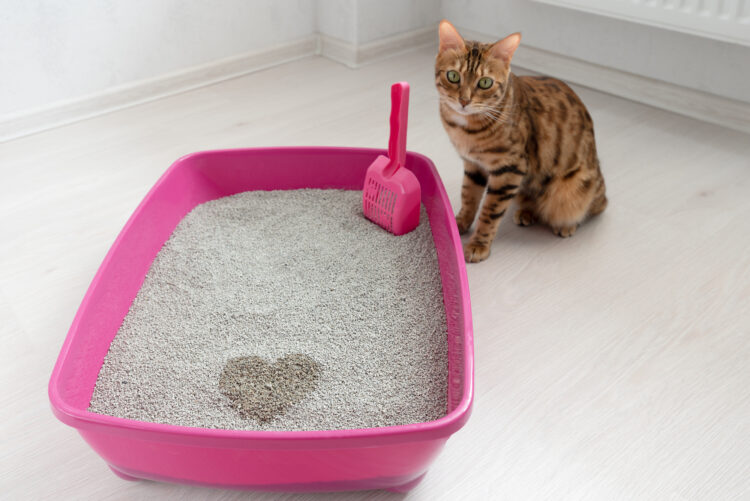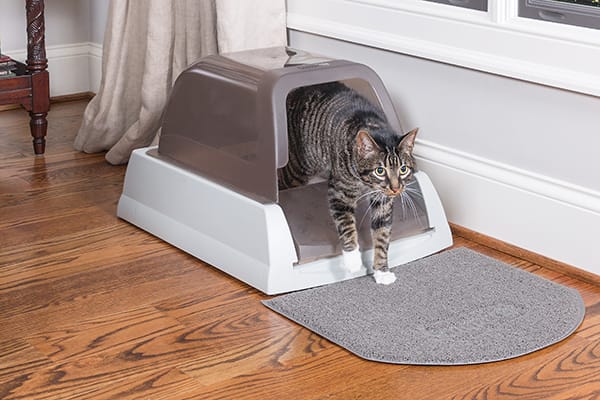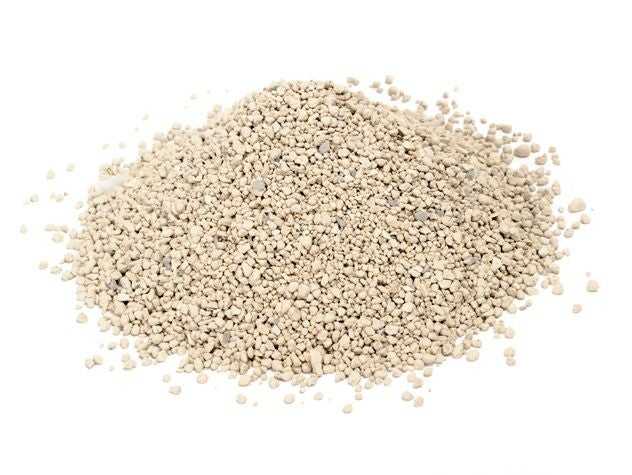Choosing the right cat litter can be tricky. But it’s important for your cat’s health and happiness. Let’s find out how to pick the perfect cat litter.
Types of Cat Litter
There are many types of cat litter. Each type has its pros and cons. Here are the most common ones:
- Clay Cat Litter: This is the most popular type. It clumps well and is easy to scoop. But it can be dusty.
- Silica Gel Cat Litter: These litter crystals absorb moisture well. They control odor but can be more expensive.
- Pine Cat Litter: Made from pine wood, it’s eco-friendly. It has a natural pine scent but may not clump well.
- Paper Cat Litter: Made from recycled paper, it’s dust-free. It’s good for cats with allergies but may not control odor well.
- Corn Cat Litter: Made from corn, it’s biodegradable. It clumps well but can attract pests.
- Wheat Cat Litter: Made from wheat, it’s eco-friendly. It clumps naturally but can have a strong odor.

Credit: ingridking.com
Factors to Consider
When picking cat litter, think about these factors:
1. Clumping Ability
Clumping litter makes cleaning easier. It forms solid clumps when wet. Non-clumping litter does not form clumps. Choose clumping litter for easy scooping.
2. Odor Control
Good cat litter controls odor. Some have added scents, but not all cats like them. Look for litter that absorbs smells well.
3. Dust Levels
Dusty litter can cause health problems. Choose low-dust or dust-free options. This is important for both you and your cat.
4. Environmental Impact
Eco-friendly litter is better for the planet. Look for biodegradable or recyclable options. This helps reduce waste.
5. Cost
Cat litter comes in different price ranges. Find a balance between cost and quality. Sometimes, spending a bit more is worth it.
6. Cat’s Preference
Your cat’s opinion matters most. Some cats are picky about their litter. Try different types and see what your cat likes best.

Credit: www.petco.com
How to Introduce New Cat Litter
Switching to a new litter can be stressful for your cat. Here are some tips to make it easier:
- Mix the new litter with the old litter. Start with a small amount.
- Gradually increase the amount of new litter. Do this over a week.
- Watch your cat’s behavior. Make sure they are comfortable.
Common Cat Litter Problems
Sometimes, there are problems with cat litter. Here are some common issues and how to fix them:
| Problem | Solution |
|---|---|
| Strong Odor | Change the litter more often. Use litter with good odor control. |
| Dust | Choose low-dust or dust-free litter. |
| Tracking | Use a litter mat. Choose litter that doesn’t track much. |
| Cat Refusing Litter | Try a different type of litter. Make sure the litter box is clean. |
Frequently Asked Questions
What Types Of Cat Litter Are Best?
Clumping clay, silica gel, and natural litters are popular. Each has unique benefits for different cat needs.
How Often Should I Change Cat Litter?
Change clumping litter weekly. Non-clumping litter should be changed twice a week to maintain hygiene and odor control.
Is Scented Cat Litter Safe?
Scented litters can mask odors but may irritate cats. Unscented litters are generally safer and preferred by most cats.
What Is The Best Cat Litter For Odor Control?
Clumping clay litters with activated charcoal or baking soda are excellent for controlling odors effectively.
Conclusion
Picking the right cat litter is important. It affects your cat’s health and happiness. Consider clumping ability, odor control, dust levels, environmental impact, cost, and your cat’s preference.
Try different types and see what works best. Make sure to introduce new litter slowly. Solve common problems with the right solutions. Your cat will thank you!

Hello, this is Frank Swanson, the owner, and operator of Pet Info Hut. I created this website as a way to share my love of pets with the world. I have over 7 years of experience working with animals, and I have a passion for helping people care for their pets. I hope that you find my website useful and informative. Thanks for visiting!
